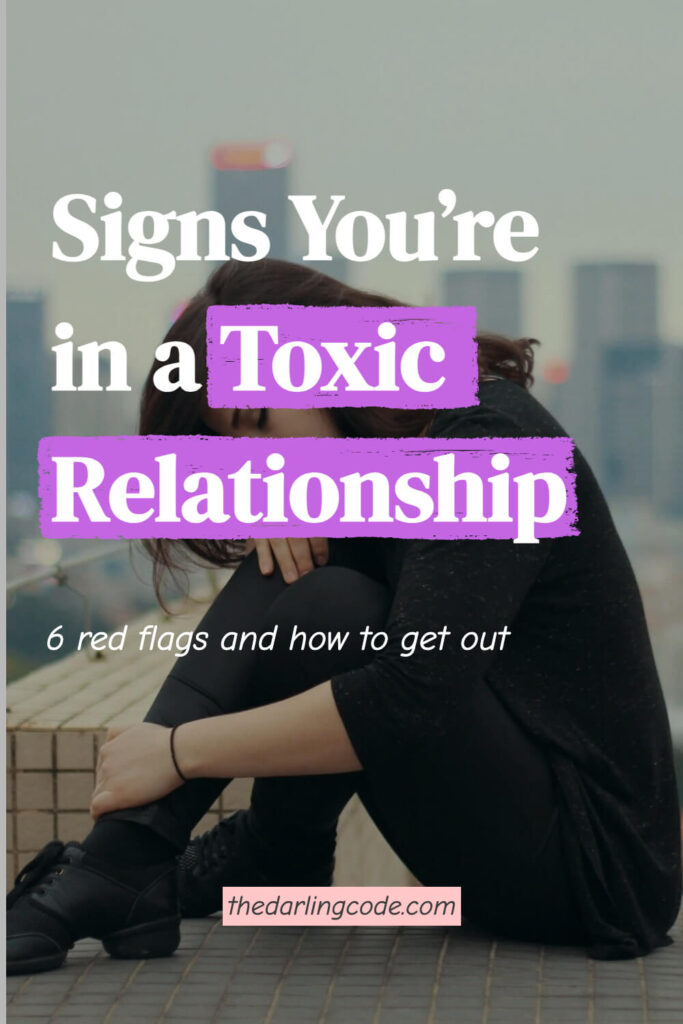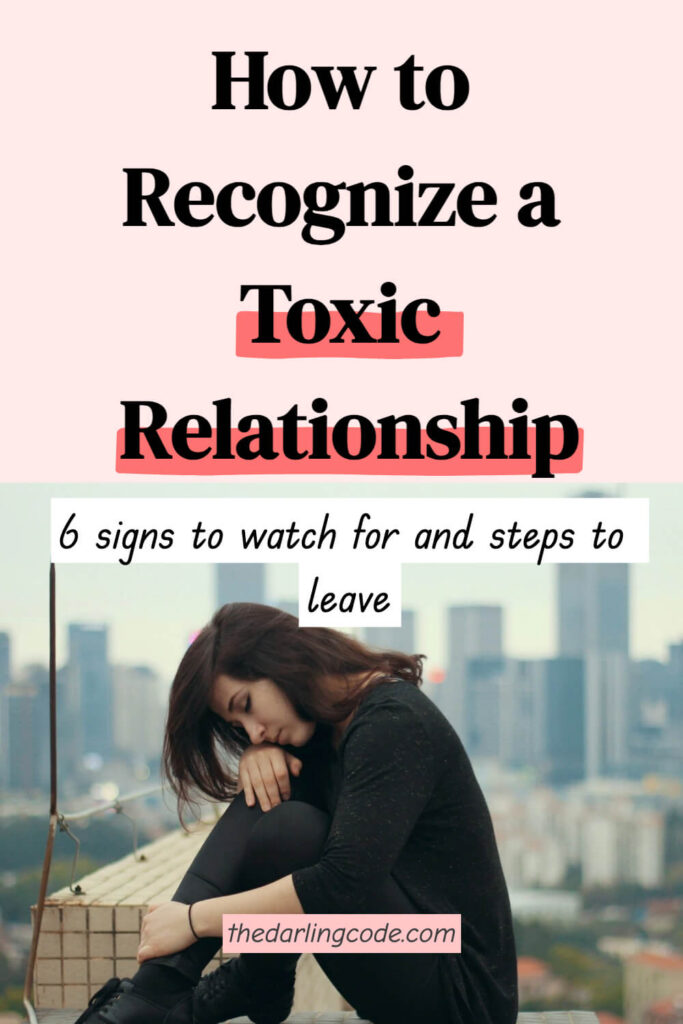6 Signs You Are in a Toxic Relationship and How to Get Out
The experiences shared in this article are based on real emotional journeys, but all personal details are anonymized and used with the explicit written permission of the clients. Any resemblance to actual persons, living or dead, is purely coincidental. We are committed to treating all client stories with the utmost confidentiality and respect.
The Subway Snap
It was 8:15 a.m. on a crowded downtown train when I overheard a conversation that made my stomach drop.
A woman in her late 20s—let’s call her Mia—was whispering fiercely into her phone: “No, I didn’t mean to ignore your texts. My meeting ran late. Yes, I’ll send you my location all day. Please don’t be mad.”
Her free hand trembled as she gripped the subway pole, her knuckles pale.
Across from her, an elderly man caught her eye and offered a sympathetic smile.
Mia looked away quickly, blinking back tears.
Toxic relationships rarely announce themselves with shouting matches or bruises.
More often, they seep into your life like carbon monoxide—silent, scentless, and slowly suffocating.
By the time you notice the symptoms, you’re already dizzy from the poison.
If Mia’s story feels familiar, take a deep breath.
You’re not overreacting.
You’re not “too sensitive.”
And you’re not trapped.
Let’s unpack the subtle signs and map your path to clean air.
Save this article for later—Pin it to Pinterest and come back when you need it! 📌

1. You’ve Become a Master Apologist
Scenario: You mention feeling hurt when they canceled plans.
Suddenly, you’re comforting them: “I’m sorry—I know you’re stressed!”
What’s happening:
- You apologize for normal needs (sleep, time with friends, emotional support)
- Their criticism gets framed as “helpful advice” (“I’m just trying to make you better”)
- Expressing feelings leads to circular arguments where you end up at fault
Real client example:
Lena found herself apologizing for needing surgery: “I’m so sorry my hospital stay inconvenienced you.”
Her partner’s response? “Well, you did know I hate driving downtown.”
Science says: Study found chronic over-apologizers in relationships show elevated cortisol levels—a biological marker of prolonged stress.
2. Your Joy Comes with Guilt
You catch yourself:
- Hiding excitement about achievements (“It’s just a promotion…”)
- Downplaying fun outings with friends (“We only had one drink!”)
- Deleting texts from supportive people to avoid accusations
Why it’s toxic: Healthy partners celebrate your wins. Toxic ones see your happiness as a threat to their control.
Gentle reality check: Keep a “joy journal” for one week. If you instinctively censor entries, it’s a red flag.
3. Your Body Keeps Secrets
Physical symptoms often manifest before emotional clarity:
- Chronic stomachaches before seeing them
- Mystery rashes or hair loss
- Panic attacks in parking lots before dates
Client story: Emma developed hives every Sunday night—the evening her partner “reviewed” her weekly spending. They disappeared two weeks post-breakup.
4. You’re Addicted to Crumbs
Toxic relationships thrive on intermittent reinforcement—those rare bursts of affection that keep you hooked:
- Hot-and-cold communication (“I’ll text hourly for days, then ghost”)
- Grand gestures after fights (jewelry, vacations) without behavioral change
- Love-bombing followed by withdrawal
It feels like: Playing a slot machine—you stay for the occasional “win,” ignoring mounting losses.
5. Your World Has Shrunk
Signs of isolation:
- Friends say “We never see you anymore”
- Family events spark arguments
- You lie about harmless activities (“I said I was working late instead of at yoga”)
Healing step: Reach out to one safe person this week. A simple “I miss you” text can restart your support system.
6. You’ve Lost Your Voice
You:
- Rehearse simple requests for hours
- Second-guess every opinion (“Do I really like this movie?”)
- Adopt their phrases and mannerisms
Powerful exercise: Write a letter to your 16-year-old self. Would they recognize who you’ve become?
How to Leave When It Feels Impossible
Step 1: Name the Fog
Keep a hidden notes app log:
- Date: March 12
- Incident: Called me “pathetic” for crying during argument
- My truth: My feelings are valid
Seeing patterns on paper weakens denial’s grip.
Step 2: Build Your Exit Team
- The Listener: A relationship coach (try Open Path Collective for affordable options)
- The Practical Ally: Someone to store important documents
- The Distractor: A friend who sends memes at 2 a.m.
Pro tip: Use code words in texts (“Red sweater” = “I need help”).
Step 3: Reclaim Small Freedoms
Start rebuilding autonomy:
- Take a different route home
- Reconnect with a abandoned hobby
- Wear something they hated
Each act is a brick in your escape path.
Step 4: The Conversation
If safe: “This isn’t working for me anymore. I need space to heal.”
If unsafe: Leave first, explain later. Your safety > their closure.
Script for pushback: “This isn’t a negotiation. I’m honoring my needs.”
Step 5: Grieve Forward
You’ll miss them—even the toxic parts. That’s normal. Create a “reality check” list of their worst behaviors for weak moments.
Healing ritual: Burn the list during a full moon (symbolic release) or shred it at an office supply store (deeply satisfying).
Final Words from The Darling Code
Last spring, I watched a determined crocus push through a crack—pavement on all sides, trash littering its base. Yet there it bloomed, bold and yellow, drinking in the weak city sun.
Toxic relationships are like that concrete: heavy, suffocating, not natural. But you—you’re the crocus. However long it takes, however small the opening, your light will find a way through.
Leaving isn’t about drama or revenge. It’s about remembering you deserve soft soil and open sky. It’s about trading survival for life.
The first step is always the hardest. The second? It’s yours to shape.
With heart,
The Darling Code
P.S. Save the National Domestic Violence Hotline number in your phone now (800-799-7233).
Better to have it and not need it than the reverse.
Got value from this article? Pin it to Pinterest for easy reference and help others discover it! 🌟


ABOUT THE AUTHOR
Carsey, Founder, Editor-in-Chief & Relationship Coach
Carsey is the heart and mind behind this space. As a Relationship Coach and Editor-in-Chief, she blends practical advice with storytelling to help you navigate love, connection, and everything in between.






